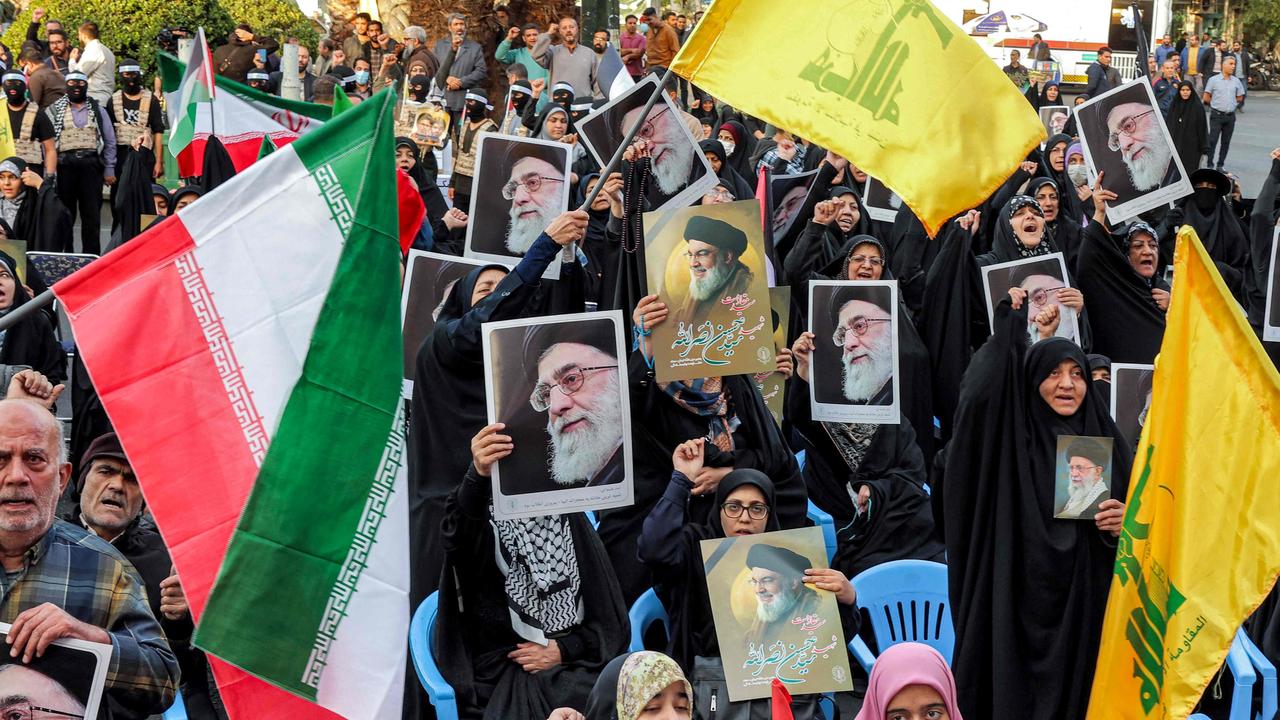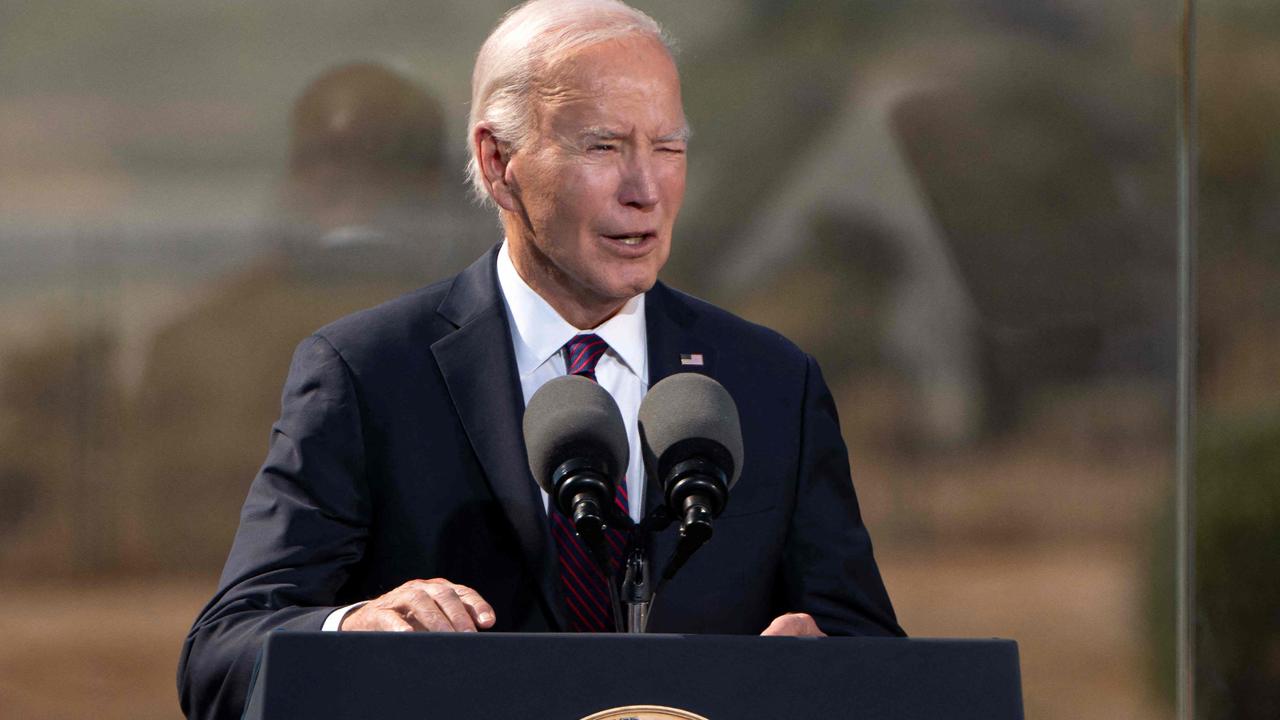
This article is more than
1 year oldHuge explosions are being reported in Iran as Israel carries out airstrikes in a major escalation in the Middle East.
Israel says it is conducting “precise strikes on military targets” in Iran — in a major escalation in the Middle East.
An attack on Iran has been anticipated since the Islamic nation launched nearly 200 ballistic missiles on Israel almost a month ago.
Today, Iranian state TV said “strong explosions” were heard around the capital Tehran, without specifying the cause of the blasts.
“Minutes ago, the sound of strong explosions were heard from around Tehran, the source of these sounds is not yet clear,” a state TV presenter said.
It later said “six loud blasts” were heard in areas of Tehran.
In a statement, the Israel Defense Forces (IDF), the country’s military, confirmed that it had begun to launch strikes against Iran.

Iranian media however has reported the loud explosions in Tehran were due to “air defence activity” and that no bombs had hit the city.

It has since broadened the scope of its operations to Lebanon, vowing to secure its northern border after nearly a year of cross-border attacks by Iran-backed Hezbollah.
“Our defensive and offensive capabilities are fully mobilised,” the Israeli military said in a statement.
Military spokesman Daniel Hagari in a separate statement called on the people to be “alert and vigilant”.
Blasts reported in Tehran
Several Tehran residents reported hearing “strong and loud sounds” around the capital, the official IRNA news agency said.
The blasts were first heard around 2.15am local time, mainly to the west of the city, it said.
Israel has vowed to respond to Iran’s missile attack on October 1.
Iran’s state TV said Saturday that operations at Tehran’s airports including Imam Khomeini International airport were “normal”, after it reported several explosions around the capital.
“Operations at Imam Khomeini International Airport and Mehrabad Airport are normal and they continue to operate according to the schedule,” the state TV presenter said, citing the chiefs of Mehrabad and Imam Khomeini airports.

Iranian media reported there is “no fire or explosion” at Tehran’s major oil refinery.
US president Joe Biden had warned Israel against hitting Iranian nuclear or oil facilities in an effort to prevent an escalation of the conflict that could lead to a major war between Iran and Israel. A strike on oil facilities would also cause the price of oil to spike at the worst possible time for Mr Biden — less than two weeks from the presidential election.
Mr Biden “has been briefed and is closely following the developments”, according to CBS.
Iran had in recent weeks warned that any attack on its “infrastructure” would provoke an “even stronger response”, while Revolutionary Guards general Rassul Sanairad said an attack on nuclear or energy sites would cross a red line.
US National Security Council spokesman Sean Savett said the “targeted strikes on military targets” are “an exercise of self-defence and in response to Iran’s ballistic missile attack against Israel on October 1.”
In a possible indication of the scope of Saturday’s strike, Syrian state news agency SANA said Syrian air defences had intercepted what it described as “hostile targets” near the capital city, Damascus.
“Our anti-aircraft defence is confronting hostile targets in the skies around Damascus,” SANA said on Telegram.

It also reported “sounds of explosions” in the vicinity of Damascus, though the origin of those blasts was unclear.
Iran claims things are all quiet in Tehran
Pictures and video on Iran’s semi-official regime media show deathly quiet on the streets of Tehran.
It is claiming the loud explosions were due to “air defence activity” in the city, and the air defence successfully operated during this incident.
Bahman Kalbasi, of BBC Persian, however said this was a typical response from Iran when it has been the target of an attack.
“It could be a face-saving way for them to end this tit-for-tat,” he said.
Why is Israel attacking Iran?
Israel has been fighting Iran-backed Hamas in Gaza since the deadliest attack in its history on October 7, 2023, which killed 1,206 people, mostly civilians, according to official Israeli figures.
It has since broadened the scope of its operations to Lebanon, vowing to secure its northern border after nearly a year of attacks launched by Iran-backed Hezbollah in support of Hamas.
Iran’s October 1 strike, its second direct attack on Israel, came after an Israeli air raid killed Hezbollah chief Hassan Nasrallah and Revolutionary Guards general Abbas Nilforoushan in Lebanon on September 27.
It also followed the killing of Hamas’s political leader, Ismail Haniyeh, on July 31 in Tehran in an attack widely blamed on Israel.
The rapid escalation of violence has raised fears across the region of a wider war, pitting Israel against Iran and the allies it dubs the “axis of resistance”.
— more to come
— with AFP